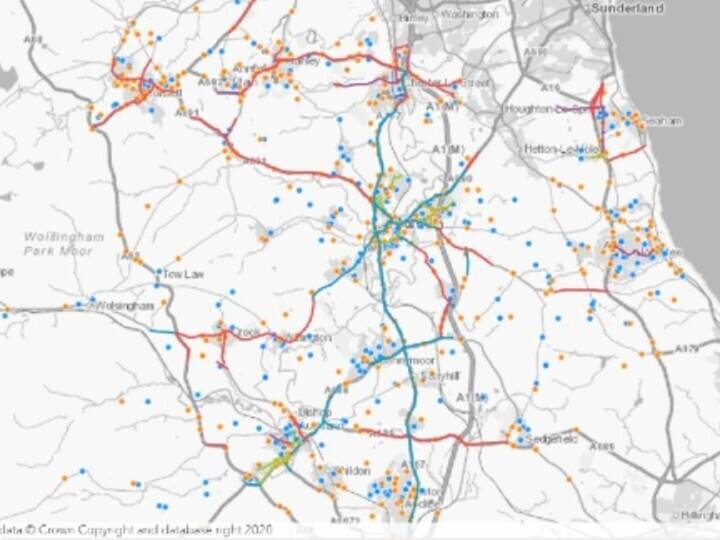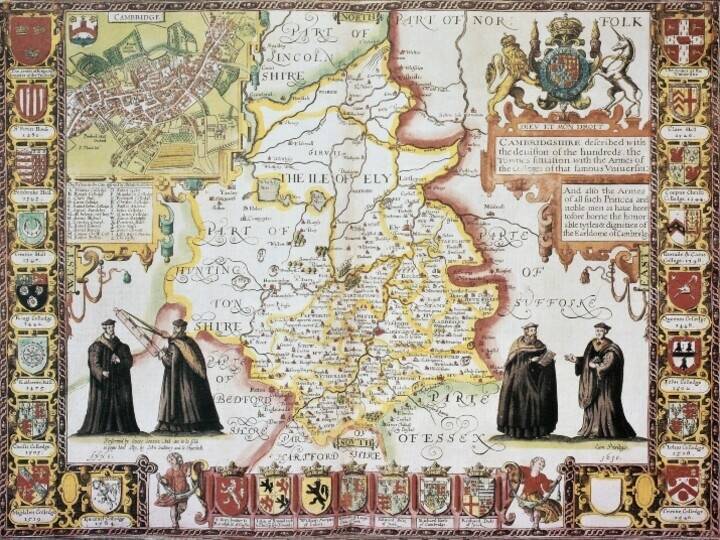Exemplar Award Winner- Winner NLPG NSG Exemplar Award ‘Integration Award’ 2010: Cambridgeshire Fire and Rescue Service
Best example of where the NLPG/LLPG or the NSG/LSG is linked to other council services or to local partnership
Cambridgeshire Fire and Rescue Service (CFRS) was an early adopter of the NLPG and has since pioneered its use within the Emergency Services sector, developing best practice and demonstrating an ongoing commitment to its development and wider adoption.
In order to achieve corporate wide integration of the NLPG, CFRS adopted a data management approach that aimed to apply a UPRN to every single piece of Service related information. Underpinning this policy is the ‘Golden Thread’ principle; a belief that the UPRN can be used to join up all operational data across the Service facilitating informed decision making and improving both access to and quality of intelligence.
Not only has CFRS integrated the UPRN, where possible, across all departments, but it has also taken the use of the NLPG to the next level developing strong relationships and robust working practices with Local Authority Custodians, demonstrating best practice to other Emergency Service organisations and developing and delivering a hosted gazetteer management service to a neighbouring Fire and Rescue Service.
Outcomes
The Golden Thread, or application of a UPRN to all Service related information, has been achieved in the following departments and internal service delivery areas: Performance, Home Fire Safety, Commercial Building Site Assessment, Water, C.A.D. and Demographic Profiles.
This has resulted in both cashable and non-cashable savings, including a reduction in annual data licensing costs; a saving of one hundred plus staff days per annum; a reduction in day-to-day queries, freeing up both operational and support resources; and an improvement in frontline service delivery and decision making.
Due to software incompatibility, the NLPG has yet to be fully integrated within the CFRS Control Room. However, the service has developed a workaround to match incidents, as they are reported, using the Incident Recording System developed by the Department of Communities and Local Government (DCLG), and address matching tools from their GIS supplier.
Above and beyond the work done to integrate the NLPG internally, CFRS has worked closely with local authority data custodians to enhance their understanding of how the data are used by the emergency services and provide feedback on the quality and coverage of the data. CFRS has also shared its experience and expertise, providing advice and anecdotal evidence to other Fire and Rescue Services and Cambridgeshire Police. CFRS has again taken this a step further and has recently embarked on a ground-breaking project to host and provide a managed gazetteer service to a neighbouring Fire and Rescue Service. This has resulted in a further reduction in costs and, even in the early stages, a marked improvement in efficiency, evidenced in shared resources and knowledge transfer
Key benefits
- A fully integrated gazetteer supporting decision making at all levels and joining up potentially disparate data throughout the organisation
- External information resources can be and are being appended to provide additional intelligence for risk analysis, resource management and safety campaigns
- Evidence of both cashable and non-cashable savings with a reduction in staff hours required to maintain the gazetteer - an 80% drop in address queries and a streamlining of processes
- Development of best practice and strong working relationships with Local Authorities and other Emergency Service organisations with shared resources and knowledge transfer
View from the authority
“Integrating the NLPG across all aspects of service delivery and operational intelligence is not just an exercise. By joining up previously disparate datasets, we can gain a better understanding of trends and patterns that occur and the relationships that exist that may contribute to risk or incident location. This intelligence is used to target resources effectively and give a greater understanding of performance.”
Nicola Smith, Business Information Manager, Cambridgeshire Fire and Rescue Service.



